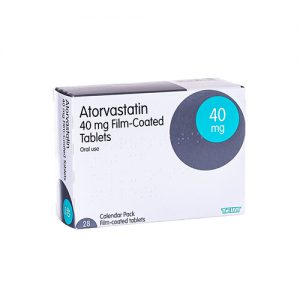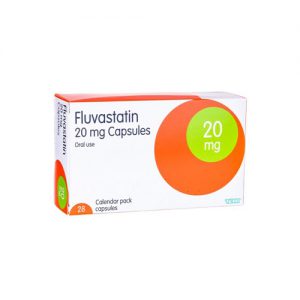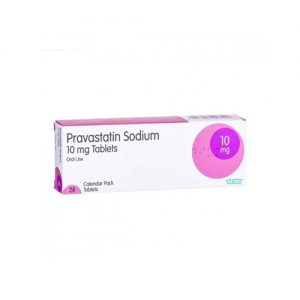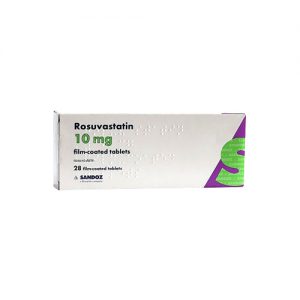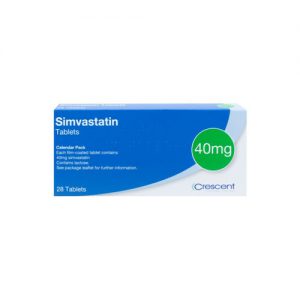Showing 6 products
Pagination
What is high cholesterol?
Cholesterol is produced in the liver mostly from our dietary intake of fatty products.
Cholesterol contains important lipids which are vital for our cellular function. For example, lipids are integral to maintain structures such as the cellular wall and insulate nerve fibres.
Cholesterol needs to be transported through the body by molecules called lipoproteins.
There are two types of lipoproteins also known as the good and bad cholesterol
- high-density lipoprotein (HDL)
- low-density lipoprotein (LDL)
HDL cholesterol, or high-density cholesterol:
HDL (high density lipoprotein) particles transport cholesterol to the liver for excretion or re-utilisation. This in effect reduces the concentration of cholesterol and therefore HDL is considered a good cholesterol.
Higher levels of HDL cholesterol in the bloodstream have been found to improve cardiovascular health, while lower levels of HDL can increase the risk of heart disease. Apoproteins are an essential component of the HDL. It helps reduce fat and cholesterol from the wall of blood vessels, thereby decreasing the risk of atheroma (clogging up blood vessels).
Consumption of foods like fish and taking body essential vitamins i.e. fish oil capsules and niacin improves the levels of HDL in the body. The optimum HDL level is of atleast 60mg/dL.
LDL cholesterol, or low-density cholesterol:
The particles of LDL (low-density lipoprotein) transport cholesterol and other nutrients to various cells in the body
These not only carry cholesterol but are also responsible for the transport of nutrients, triglycerides and fat-soluble vitamins. If there is excess supply of LDL than required by cells, there becomes a build-up of LDL particles.
The high concentration of LDL in the bloodstream adheres to vessel wall and starts the atheroma. Atheroma of vessels will cause blockages that can lead to health complications like stroke, angina, and cardiac attack.
What causes high cholesterol?
There are many causes that can increase the cholesterol level, most of which can be treated or even avoided. Following factors can cause high cholesterols:
- Consuming high saturated items like dairy products and meat
- Not maintaining a fit and healthy life style.
- Overweight and obese people are more likely to have high cholesterol levels.
The treatment of these conditions also tends to reduce LDL levels.
Food and Cholesterol
Foods that reduce high cholesterol
- Foods with low saturated fat can lower high cholesterol including
- Oats
- Vegetables
- Beans and pulses
- citrus fruits and mangos
- Soya and tofu
- Lentils
- Dried nuts
Foods that can increase cholesterol
- It is advised to eliminate the following foods and substantially reduce the amount of unwanted cholesterol:
- Butter and hard margarines
- Fatty meat products.
- Dairy products.
What should my cholesterol be?
Health providers consider the following to determine whether the LDL levels are too high along with other health and lifestyle factors:
| Result | Healthy level |
| Total cholesterol | 5 or below |
| HDL (good cholesterol) | 1 or above |
| LDL (bad cholesterol) | 3 or below |
| Non-HDL (bad cholesterol) | 4 or below |
| Triglycerides | 2.3 or below |
Dangers of high cholesterol
High levels of LDL can lead to the following conditions:
- Atherosclerosis
- Heart attack
- Stroke
- Angina
Benefits of treatment for high cholesterol
Decreased risk of plaque formation in the arteries
Reduced risk of plaque formation in the artery increased plaque formation can lead to stroke, angina, or heart attack if not resolved in time.
Increased energy levels
Reduced cholesterol levels ensure that the heart can efficiently pump blood through the arteries across the body, thereby consuming less energy.
Having a cholesterol test
There are 2 ways of having a cholesterol test.
Taking blood from your arm
Some blood will usually be taken from your arm with a needle.
This is sent to a lab to check your cholesterol level. You should get the result in a few days.
You might be asked not to eat anything for up to 12 hours before the test. But this is not always needed.
Finger-prick test
If you're over 40, you may have a test during your NHS Health Check.
This is a check-up that can help spot early signs of problems like heart disease and diabetes.
The test can be done by pricking your finger. A drop of blood is put on a strip of paper. This is put into a machine that checks your cholesterol in a few minutes.
What happens next
If you have high cholesterol, a doctor or nurse will talk to you about how you can lower it.
This might include things like changing your diet or taking medicine.
They may also work out your risk of having a heart attack or stroke in the next 10 years.
They can do this using your:
- cholesterol levels
- blood pressure
- height and weight
- age, sex and ethnicity
- Lowering your cholesterol can help lower your risk of having a heart attack or stroke.
Treatment options
Changes in your lifestyle
Your food intake and fitness routines – by being more physical and consuming diets not rich in saturated fats-are the safest means of controlling elevated levels of LDL.
Prescription treatments
These drugs are highly effective and usually have a very low risk of side effects. These are some of the most common cholesterol treatment statins available:
- Simvastatin
- Crestor
- Fluvastatin
- Lipitor
- Pravastatin
- Atorvastatin
- Lescol
- Lipostat
- Zocor




We’re here to help.
Our friendly team is available to help Monday to Friday 9:00am - 5:00pm.
If you need urgent assistance, do not use this service. Call 111, or in an emergency call 999.

